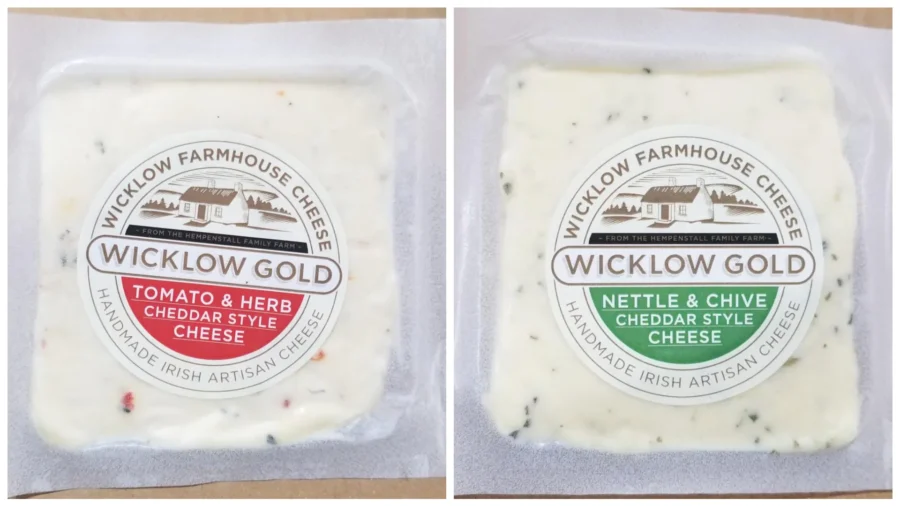Two companies are withdrawing food items from the market following concerns the products could contain pathogens that pose health risks to pets and human beings.
North Carolina-based Blue Ridge Beef is recalling 1,350 pounds of “Kitten Mix” pet food, citing contamination by salmonella bacteria, according to a Jan. 3 statement published by the U.S. Food and Drug Administration (FDA). The same day, New Jersey-based Abbey Specialty Foods announced a recall of two cheddar products, saying the items were potentially contaminated with listeria monocytogenes bacteria.
The Blue Ridge recall is applicable to products distributed between July 18 and 26, 2024. The items were sold mainly via retail stores in six states—Virginia, Maryland, Pennsylvania, Connecticut, Massachusetts, and New York.
“Salmonella can affect animals eating the products,” the FDA said in the recall notice. “Pets with Salmonella infections may be lethargic and have diarrhea or bloody diarrhea, fever, and vomiting. Some pets will have only decreased appetite, fever, and abdominal pain.”
“Infected but otherwise healthy pets can be carriers and infect other animals or humans. If your pet has consumed the recalled product and has these symptoms, please contact your veterinarian.”
People who handle contaminated pet food are at risk of infection, it said, especially if they do not thoroughly wash their hands after being exposed to the item.
Blue Ridge decided to initiate the recall after a customer complained about an animal illness case. Officials collected a sample of the product and tested it, which showed the presence of salmonella.
The company asked customers who have bought the item to return it to the place of purchase or destroy it completely so that pets, other animals, or children do not have access to it.
Meanwhile, the Abbey recall is applicable to “Cheddar Nettle & Chive” and “Cheddar Tomato & Herb” products sold in 5.2 oz packages under the brand name “Wicklow Gold.”
The potential listeria contamination in these items “can cause serious and sometimes fatal infections in young children, frail or elderly people, and others with weakened immune systems,” the FDA warned.
“Although healthy individuals may suffer only short-term symptoms such as high fever, severe headache, stiffness, nausea, abdominal pain, and diarrhea, Listeria infection can cause miscarriages and stillbirths among pregnant women.”
The products were distributed in Massachusetts, Maine, New Hampshire, Ohio, and Colorado. Businesses that received the items were informed about the contamination risk and have pulled them off the shelves.
The company clarified that no report of adverse events linked to consuming the items have been reported so far. Abbey asked customers to dispose of the products or return them for a full refund.
The Epoch Times reached out to Abbey Specialty and Blue Ridge for comment.
Diminishing Public Trust
The recalls come as a Sept. 6 Gallup survey found that more Americans are now concerned that the government is not up to the mark when it comes to ensuring food safety.
In the poll, only 57 percent of respondents said they had a “great deal” or “fair amount” of trust in the federal government to keep the food supply chain safe, which Gallup said was a “record low.” The number is down 11 percent from a prior poll in 2019.
“One of the largest drops in confidence is seen among parents of young children—49 percent express confidence in the government’s assurance of the food supply, down from 67 percent in 2019,” said Gallup.
In July, lawmakers introduced a bill seeking to establish a “Federal Food Administration.” The entity would act as a single agency to deal with the country’s food supply issues and would take over authority from the FDA on the issue.
The new agency will be set up under the Department of Health and Human Services and is intended to incorporate current FDA food programs, including the Center for Food Safety and Applied Nutrition and the Office of Food Policy and Response.
The legislation has received the backing of multiple advocacy groups like Consumer Reports and STOP Foodborne Illnesses.
“I believe we need a single food safety agency solely focused on keeping the foods that we eat, safe,” Rep. Rosa DeLauro (D-Conn.), one of the lawmakers who introduced the bill, said at the time.
“Creating a single food safety agency could prevent avoidable product contaminations and subsequent recalls that disrupt the supply chain, contribute to rising prices, and in many cases, result in consumer illness and death.”
From The Epoch Times

